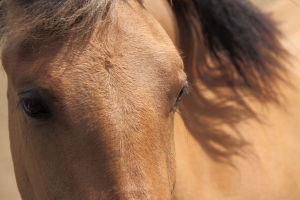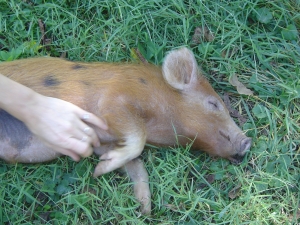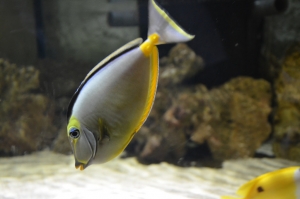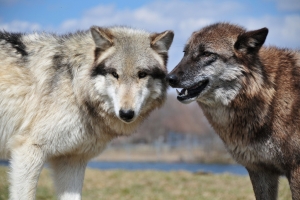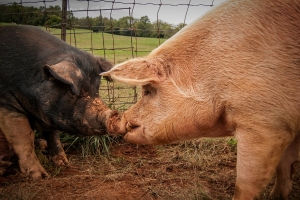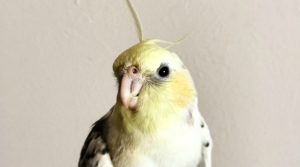Displaying items by tag: Sentience
Why Can Dogs and Horses Read Our Faces?
For anyone who has spent much time around either dogs or horses, two species with a long history of companionship with humans, the news of recent weeks probably comes as no surprise.
The Feeling Lives of Animals
On Saturday mornings I visit an animal sanctuary in rural Maryland where I join a small team of volunteers tending to farm animals rescued from neglect or abuse. Some of these animals will never fully trust a human, while others want to interact.
Fish Friendships Facilitate Foraging Opportunities
For the first time, scientists have observed a species of fish that literally “watches each others’ backs” while foraging. Coral reef rabbitfishes foraging in pairs were found to forage in a unique manner: one fish forages head down in the coral reef, while the fish’s partner stands watch, head up, scanning the surroundings for threats.
Three Times Veterinary Organizations Stood Up for Animals this Year
Veterinarians are thought of by many as protectors of animals, and indeed, when it comes to our cats, dogs, and other companion animals, few others have our animals’ interests in mind more than the family veterinarian. Veterinarians are able to help us correct behavioral problems, choose successful treatments, and advise us during difficult end of life decisions. They are a trusted resource on how to give our companion animals the best lives we can.
Beyond Words: A New Book About What Animals Think and Feel
During the past months I've received many books about the cognitive and emotional lives of nonhuman animals (animals). I've reviewed many of them, and the latest, Beyond Words: What Animals Think and Feel (the Kindle edition can be found here) by award-winning scientist and writer Carl Safina, is one of the best and I'd like simply to inform readers about this excellent book that contains numerous facts and compelling stories about a wide array of the fascinating animals with whom we share our magnificent planet.
This Little Piggy: A Few Things Animal Advocates Should Know About Pigs
Chimpanzees. Elephants. Dolphins. Perhaps dogs. These are the animals that many people, including animal advocates, envision when thinking of the “smartest” animals. However, this list, accurate as it may be, is by no means inclusive. There are in fact other animals who can hold their own in scientists’ tests for intelligence and emotion, but who are all too often overlooked simply because of the role they play in human society.
Three Times Animal Sentience Made the News This May
At World Animal Net, we define sentience in our forthcoming Model Animal Welfare Act as the capacity to perceive or feel things--more specifically, sentient beings share with us consciousness, feelings, emotions, perceptions – and the ability to experience pain, suffering, fear, distress and states of well-being. Animal sentience is a major underpinning for nearly all the philosophies that explain why animals and their interests deserve consideration and flies in the face of traditional Western views of animals as “automatons” who feel no pain and do not suffer, and consequently are “things” that humans can do with as they like. While animal advocates have long been criticized for their views as being based in passion and not rationality, science is now confirming what advocates have always known.
Rats Understand & React to Facial Expressions of Other Rats, but What About Birds?
Several years ago, while working on my undergraduate degree in biology, I took a course in vertebrate zoology. This course required the rote memorization of hundreds of traits about both extinct and extant (still living today) families of vertebrates, from the solemnly repulsive hagfish to our familiar and celebrated mammals. One of the traits that was listed for our memorization was that birds do not possess facial expressions.
Using Sentience for Advocacy: A Few New Resources
On the heels of the recent recognition in the French parliament that animals are “living, sentient beings” who will now be recognized by their intrinsic value rather than market value, animal advocates are again reminded of the importance of emphasizing in their work the increasing body of scientific evidence for animal sentience.
What Do Elephants, Rats, and Ravens Have in Common? Empathy.
We are all familiar with the feeling of empathy. We feel sad when our friends and family are sad, and we share their happiness when they are happy. But is empathy a trait unique to humans?

